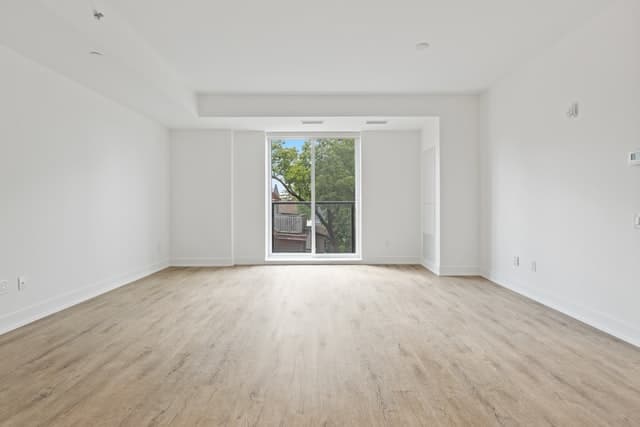If you have a tenant in your property with a month-to-month rental agreement or no written agreement at all, you might be concerned that you won’t be able to evict them if they violated your agreement or didn’t pay rent. How to evict someone who doesn’t have a lease will vary depending on what state you’re in, but you can rest assured that you can still evict a tenant even if there is only an oral agreement in place.
If you’ve been allowing someone to live in your rental property without a lease, they are known as a tenant-at-will.
You’ll need to give a tenant-at-will a notice to quit, which is thirty days in many states. In some instances, you may only have to give a fourteen-day notice to quit. You aren’t required to give a reason that you’re asking a tenant-at-will to leave.
If the tenant leaves within the given window, that’s great! If they don’t, though, it means you probably want to start the eviction proceedings. Later on in the article, we’ll also discuss the “cash for keys” option, which might be a more affordable and less time-consuming way to get tenants out of your property than an eviction suit.

While the law can vary depending on your state, in most places a person is considered your tenant if they have paid rent or agreed to pay rent to live somewhere. This means that a written lease isn’t necessary in many areas for a person to be considered a tenant, as the agreement can be oral.
In most states, an agreement of this type will default to a month-to-month agreement. What this means is that either party can end the agreement with proper notice, with or without reason.
If you’re a landlord that has a tenant without a lease, that doesn’t mean you’re out of luck when it comes to evicting them. A person doesn’t have indefinite permission to live in your property just because there isn’t a written lease.
Whether a person has a lease or is a tenant-at-will will dictate when you end the tenancy and how much notice you need to give. If a tenant chooses not to leave by the time outlined in the notice, you might have to proceed with the legal process of evicting them.
For more information about evictions, check out this article about how to evict someone from your property or home.

It’s essential to understand that there are specific rules and procedures that must be followed when evicting a tenant that differs between states. While it is understandably distressing to have tenants in your property that won’t leave, taking the matter into your own hands will likely mean you’re breaking the law and can cause you a lot of legal and financial trouble. Some examples of this type of action include:
If you try and illegally remove or evict someone from your property, a tenant will have the right to take legal action against you. In some states, there is a certain amount of money that tenants can sue for. Additionally, you might have to pick up the bill for your tenant’s court costs and attorney’s fees if they are successful in their suit. They also might be awarded the right to remain in your property.
When you are attempting to end a tenancy period early, whether there is a lease or not, it’s important to understand that there are only a handful of legal reasons to justify this action. While there are going to be differences in laws state by state, some reasons that you can usually lawfully end a tenancy early include:
In some states, asking tenants to move out in order for you to move into the property might also be legal.
There are also a number of unlawful reasons that landlords ask their tenants to leave a property. It is very important that you don’t ask a tenant to leave your property or follow through with an eviction based on an illegal justification.
Some examples of unlawful reasons for terminating a rental agreement early include:
Attempting to illegally evict a tenant can put you in a very bad position legally and financially, even if you feel fully justified in doing so.
For month-to-month agreements in most places, a landlord can give you notice to quit without offering a reason why they want you out. (NJ, NH, and most rent-controlled cities are notable exceptions, where "just cause" is required for termination.) However, they need to give you the appropriate amount of notice before you are expected to vacate the property.

Before we move on to more specific circumstances, let’s run through the general steps for evicting a tenant without a lease.
Before you even think about starting the eviction process, you will need to send out a written Notice to Quit. This is a notice that is demanding that the tenant vacates the property by a specific deadline. Your state and municipal laws will outline the specific circumstances in which you can issue a Notice to Quit, including:
If your state law dictates that an oral rental agreement is a month-to-month by default, or, if you have a month-to-month written agreement, you generally need to provide a thirty-day Notice to Quit. Again, though, the precise amount of time will vary by state.
If a tenant hasn’t paid rent, how long you have to wait before giving the Notice to Quit or starting an eviction proceeding will depend on state laws. The following link offers a useful table on the state laws on termination for nonpayment of rent.
When you send a Notice to Quit will depend on the reason that you are asking the tenant to leave the property. In almost all states and cases, tenants need to be properly served the Notice to Quit at least three days before you’re allowed to file for an eviction. It isn’t uncommon to be required to serve a tenant with a Notice to Cease before you're legally allowed to send a Notice to Quit.
Once you’ve sent the Notice to Quit, one of two things will occur.
If the deadline listed on the Notice to Quit you gave your tenant has come and gone, the next step is to file for an eviction hearing. In some places, you can file and submit evidence online, while in others you’ll need to go to your local courthouse.
A hearing date will be scheduled once the court reviews the information you filed. Both you and the tenant will receive notice of the hearing date.
At the hearing, you’ll need to state your case including the rental agreement you had with the tenant, why the tenant needs to leave the property, and when and how you sent notice.
The tenant will also have the opportunity to explain why they believe they should be able to stay in the property.
A judge will ultimately decide to rule in favor of either you or your tenant. If either of you doesn’t go to the hearing, it’s common for the decision to be made in favor of the present party.
If you win your case, you still aren’t able to take the matter into your own hands and force the tenant off the property. In most places, the authority for executing an eviction falls with local law enforcement, who will physically remove the tenant from your property if necessary.
There are also rules about how you deal with abandoned property left behind by tenants. Before you haul over a dumpster and load it up, make sure you understand how long you need to leave the property and if there are requirements for storage and notice in your location.

So far, we’ve been talking about evicting people from your property with the assumption that you have a written or oral rental agreement of one kind or another.
However, what if you don’t have an agreement of any kind with the person in your home or apartment? What if they’ve been squatting on your property?
Sometimes, tenants turn into squatters when they stop paying rent but don’t leave the property. In other instances, a squatter might be someone that broke into a vacant property you own and has started living there.
The process of evicting a squatter isn’t terribly different from evicting a tenant. While it might seem like you should be able to use whatever means necessary to remove someone that is unlawfully staying at a house you own, it’s important to follow the law to avoid legal trouble that could ensue.
You need to provide notice to someone that is squatting in your property. There are different rules for each state and sometimes laws specific to municipalities regarding how much time you must allow between giving the Notice and filing for eviction.
When enough time has passed based on your state laws, you can file an eviction suit. If you receive a court order to remove the squatter, you can use this to have the authorities remove them from the property.
Another instance when you might need to evict someone that doesn’t have a lease is if you have an informal agreement with someone that is living in your primary residence. This might mean you’re renting a room to someone or could even apply in cases where a family member has overstayed their welcome but is refusing to leave.
The process here is very similar to the one you would follow if you had a rental property and tenants without a lease. However, it can feel a lot different because you likely have more of a relationship with the person that is living in your home. In the case of the individual being a family member or a close friend, this type of situation can be deeply troubling.
The first step, of course, is to talk to the person and tell them that you would like them to move out (so long as doing so doesn't put you in danger.) If they make it clear that they aren’t going to leave, though, you will want to send out a notice to quit. If they still don’t move out, you’ll want to follow the proper eviction proceedings in your state.
An important distinction to make, though, is if someone is a guest or a tenant. If a guest has overstayed their welcome, the legal avenue you have to remove them from your property is calling local law enforcement because they are technically trespassing. This isn’t as easy as it sounds, however, because cops are often wary of getting involved in these situations because they don’t have any certain way of knowing whether or not they are actually tenants. If the guests are actually tenants, a formal eviction suit will have to be filed and it isn’t a simple instance of trespassing.
How long the eviction process takes from start to finish has a lot to do with which state you’re in. In the quickest states, an eviction might take as little as two weeks. In the slowest states, it might take three months or more.
In addition to the state you’re in, some additional factors that influence how long an eviction takes include:
The general steps involved in an eviction include:
A number of things can slow down the eviction process. Here are some of the most common culprits for an eviction taking longer than usual:
Like many other details related to eviction, the final bill for the cost of eviction will vary depending on which state you're in. Let’s take a look at the general costs of eviction to get a sense of how much you should expect it to set you back.
There will be court fees in order to file the eviction claim. The average cost for filing an eviction is roughly $50, but this can vary by state. Your court fees can go up if the tenant contests the eviction and even more so if the trial drags on for an extended period of time.
The biggest chunk of your bill when evicting a tenant is going to come in the form of legal fees. For an uncontested eviction, you should expect your legal fees to be at least $500. In general, the complexity of the case will directly relate to how much it costs to have an attorney on your side.
You’re likely greatly relieved if you won your eviction suit, but the process isn’t over yet (nor the costs.) If you get lucky, the tenant will leave right away and give you the keys back. If they don’t, you’ll have to involve local law enforcement.
The cost of involving the sheriff’s office varies depending on your location. To hire them to serve notice, often costs somewhere between $50 and $400.
Another major cost of eviction is the rental income you’ve lost over the course of the debacle. The most common reason for evictions is the nonpayment of rent. Considering that it often takes about three months to get a tenant legally removed from your property, this might just be the single most expensive part of the process.
One of the ways you can assess the value of a rental property is by using projected rent. Check out this article to learn how to calculate property value based on rental income.
If you’ve had a tenant that refused to move out despite receiving notice and losing the eviction suit, chances are they aren’t leaving the property in the best of condition. This means that you’ll probably have to do some deep cleaning and repairs to the place before renting it out again.
How much this costs you will obviously vary depending on the type of damage done and the state of the property.
In addition to the costs listed above, there are a number of other fees and costs you’ll want to keep in mind.
First of all, you’ll want to replace the locks. There’s no reason to assume that there isn’t still a key or two floating around out there for your rental, and it’s not worth taking the chance that a tenant could try and move back in after having gone through the trouble of a formal eviction. This will probably cost somewhere between $150 and $300.
Secondly, you might be incurring travel expenses to deal with the eviction depending on whether the property is local to you or remote.
Third, you’ll have to factor in the costs of finding a replacement tenant.
Finally, the amount of time you spend dealing with or worrying about this issue is also a cost. Not only does dealing with an eviction mean that you’re not spending your time in more productive or enjoyable ways, but it can be incredibly stressful. The reality is that there can be a health cost to eviction in addition to monetary costs.
Wondering how profitable a prospective property could be? Learn how to calculate ROI on rental property here.
You might have heard of “cash for keys” in instances where a homeowner is facing foreclosure. However, this can also be an incredibly useful tool for landlords and real estate investors.
Cash for keys is an agreement between a landlord and a tenant where the landlord agrees to give the tenant a certain amount of money in exchange for them vacating the property.
The idea of giving your most troublesome tenant money to leave the property might make your blood boil, but it’s worth considering how much time (and potentially money) this could save you versus going to eviction court.
It’s very important to get the cash-for keys agreement in writing to ensure that it is a legally enforceable agreement. The tenant should sign this agreement. In the case that they don’t move out when they agree to, you can use this document in an actual eviction process.
The state and city you live in will have a big impact on the timeline of the eviction process you go through. Let’s look at the states with the most landlord-friendly eviction laws.
If your tenant doesn’t pay the rent in Colorado or violates the terms of the lease, you only have to give a three-day notice to fix the situation on the first offense. If the problem repeats itself, the landlord can give a three-day notice without the option to remain in the rental even if the problem is fixed.
Certain violations of a rental agreement are considered “identical to cancellation” in South Dakota. If a tenant breaks the rental agreement for certain offenses, the landlord can give a three-day notice to move out without any opportunity to rectify the situation.
Landlords can begin the eviction process the day after rent was due in Georgia. The tenant might have the option to pay the rent they owe before the court date if this is only the first time they’re late. If it’s their second offense, though, the landlord can issue a quit notice.
The laws in Montana regarding eviction are actually pretty confusing because they offer different time frames depending on the violation. In general, though, the laws lean in favor of landlords in these cases.
Landlords can notify tenants of an eviction in person, in writing, or over the phone in West Virginia. There also aren’t any set notice times regarding the fact that eviction is going to occur.
In certain states, the eviction process is going to take a lot longer than in others. Let’s look at some of the states with the most tenant-friendly eviction laws.
The landlord-tenant laws in Maryland seem to favor the landlord in some instances and the tenant in others. For example, landlords can file for eviction the day after rent is late. However, a tenant can usually pay the late rent in full at any time before the eviction is complete and bring the process to a halt.
If a tenant violates the rental agreement, though, a landlord has to give a tenant thirty days to vacate before starting eviction proceedings.
For tenants on a lease, landlords are able to file for eviction as soon as the rent is late. Tenants then receive a letter with a deadline from the court. They’re in the clear if they are able to pay the rent by the deadline.
People on a month-to-month agreement are given ten calendar days to either move or pay before the eviction process begins.
In Massachusetts, if a landlord tries to remove a tenant’s belongings or enter their rental when he isn’t allowed in order to speed up the process, he can face fines and even up to six months of jail time.
In Pennsylvania, tenants have ten days to pay the rent after missing a payment before the eviction process can begin. Violations of a year-lease mean that the tenant must be given a thirty-day notice to vacate before eviction. If a tenant doesn’t have a lease, the notice required is fifteen days.
Tenants have to be given thirty days' notice to move out if they break the terms of a lease or don’t pay rent on time before the eviction process starts. They also have the ability to stop the eviction if they fix the issue in fourteen days.
Vermont is one of the states that are friendliest to tenants. Tenants have fourteen days to pay late rent and thirty days to move if they violated the terms of a lease. Even severe violations of the rental agreement result in the tenant getting a fourteen-day notice.
Owning rental properties is a lot of work, and the thought of having to deal with eviction suits can be enough to put you off the idea altogether.
The type of property you purchase and how seriously you take the tenant screening process can go a long way in helping to avoid an outcome where you have to evict someone. After all, a lot of people have no interest in remaining in a property where the owner doesn’t want them, and even fewer want to have an eviction on their record. If you aren’t careful about where you buy property and who you rent them out to, though, you could find yourself constantly dealing with eviction cases.
There are a lot of factors that should inform your choice of rental property, one of which should absolutely be your risk tolerance for dealing with issues like evictions. For some landlords, this type of thing is like water off a duck’s back. For others, though, it means sleepless nights and a lot of stress.
Of course, you’ll need to make sure that any property you choose is helping you meet your financial goals, whatever they may be. You can use our rental property calculator to make ensure that all the numbers add up in your favor.
We encourage you to share this article on Twitter and Facebook. Just click those two links - you'll see why.
It's important to share the news to spread the truth. Most people won't.